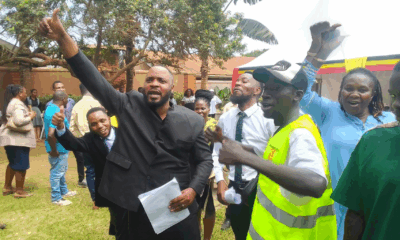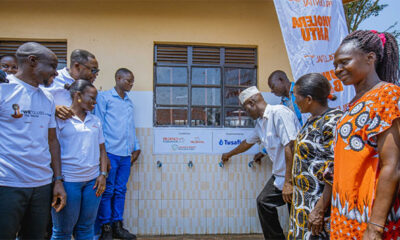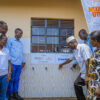Climate Change
Uganda’s Climate Agenda Under NDP IV: Experts Warn of Gaps as Budget Compliance Declines
As Uganda embarks on the implementation of the Fourth National Development Plan (NDP IV), concerns are growing over the country’s ability to effectively address the escalating impacts of climate change. An expert review of NDP III performance and the latest climate budget assessments reveals that critical vulnerabilities have not been adequately addressed, despite Uganda facing increasingly extreme weather events.
The assessment, led by the Advocates Coalition for Development and Environment (ACODE), paints a sobering picture of declining climate budget compliance and insufficient financing for adaptation measures. Uganda, the report notes, is already reeling from the effects of climate change, including prolonged droughts, flash floods, landslides, and unprecedented heat waves, with temperatures soaring to 40⁰C in some regions earlier this year.
“Communities are getting accustomed to devastation of crops and livestock during longer droughts, broken bridges, submerged city suburbs, and recurring mudslides in the east, west, and southwest,” the report states, emphasising that these disasters are a visible signal of a rapidly warming climate.
According to the Climate Budget Compliance Assessment, climate-related allocations in Uganda’s budgets have been on a fluctuating and worrying trend. Compliance scores rose from 50 per cent in 2020/21 to a peak of 65 per cent in 2021/22, before dipping sharply to 46.1 per cent in 2022/23. Although there was a slight rebound to 54.1 per cent in 2023/24, the compliance rating slid again to 53.18 per cent in 2024/25.
For the 2025/26 financial year—the first under NDP IV—the climate budget score has dropped further to 44.8 per cent, categorised as “unsatisfactory.” Analysts attribute this to the transition from NDP III to NDP IV, which required a review of interventions and budget tagging.
A key factor has been the Rationalisation of Public Expenditure (RAPEX), under which climate-related activities were moved into lead ministries, departments and agencies (MDAs). “The impact of this shift is yet to be seen,” the report notes, with some allocations distorted or diluted in the process.
While Uganda has identified priority areas in its Nationally Determined Contribution (NDC) under the Paris Agreement, the report finds that budget allocations remain misaligned. Most funding is channelled toward mitigation of greenhouse gas emissions rather than adaptation—despite Uganda’s pressing need to strengthen resilience to climate shocks.
“Mitigation is attracting more funding largely because development partners prioritise it. Yet Uganda’s urgent priority is adaptation, including building resilient infrastructure, protecting vulnerable communities, and ensuring food security,” the analysis states.
Indeed, the assessment found that administrative and “soft” interventions such as awareness creation and coordination are receiving greater attention than “hardware” responses like constructing climate-resilient roads, bridges, and water systems. This imbalance, experts warn, leaves Uganda exposed to worsening climate disasters.
The review reveals sharp contrasts in sectoral performance. Regional Development scored the highest at 87.5 per cent compliance, followed by Sustainable Urban Development (75) and Human Capital Development (71.7). Petroleum Resource Development (66.7) and Private Sector Development (60) also fared relatively well.
In contrast, key climate-vulnerable sectors underperformed: Manufacturing scored just 10, Tourism 30, Agro-Industrialisation 37.1, and Integrated Transport Infrastructure 38.2. “Ironically, these are the programmes most exposed to climate hazards, yet they are receiving the least support,” the report highlights.
Despite the setbacks, there are signs of progress. The Ministry of Finance, Planning and Economic Development (MoFPED) has established a Climate Finance Unit and is finalising a National Climate Finance Strategy for 2025. The government is also rolling out climate budget tagging in the Programme Budgeting System (PBS), which will make it easier to track spending and outcomes.
Civil society actors have also stepped up advocacy for stronger climate action and accountability. According to the report, sustained lobbying has already increased visibility of climate issues in government planning and budgeting cycles.
Experts caution that Uganda must learn from the shortcomings of NDP III if NDP IV is to succeed in safeguarding lives and livelihoods from climate risks. Key recommendations include increasing financing for adaptation measures, improving coordination among MDAs, and ensuring that budget allocations match the scale of the climate challenge.
“Fluctuations in climate budget compliance reflect the country’s uneven appreciation of climate change impacts,” the assessment concludes. “Without bold, sustained investment in adaptation, Uganda risks undermining its own development goals under NDP IV.”
With climate disasters becoming more frequent and severe, stakeholders say the next five years will be decisive for Uganda’s ability to build resilience and meet its international climate commitments.
Comments



























